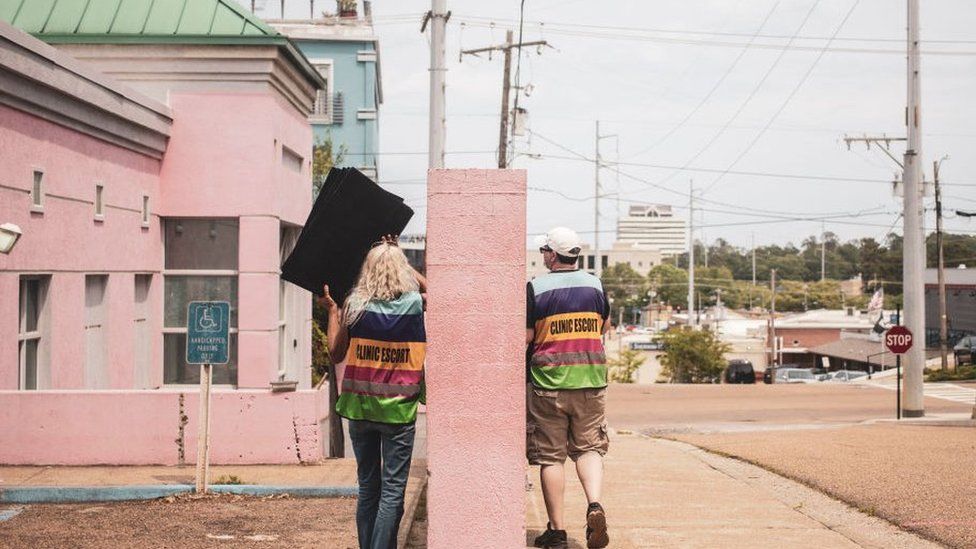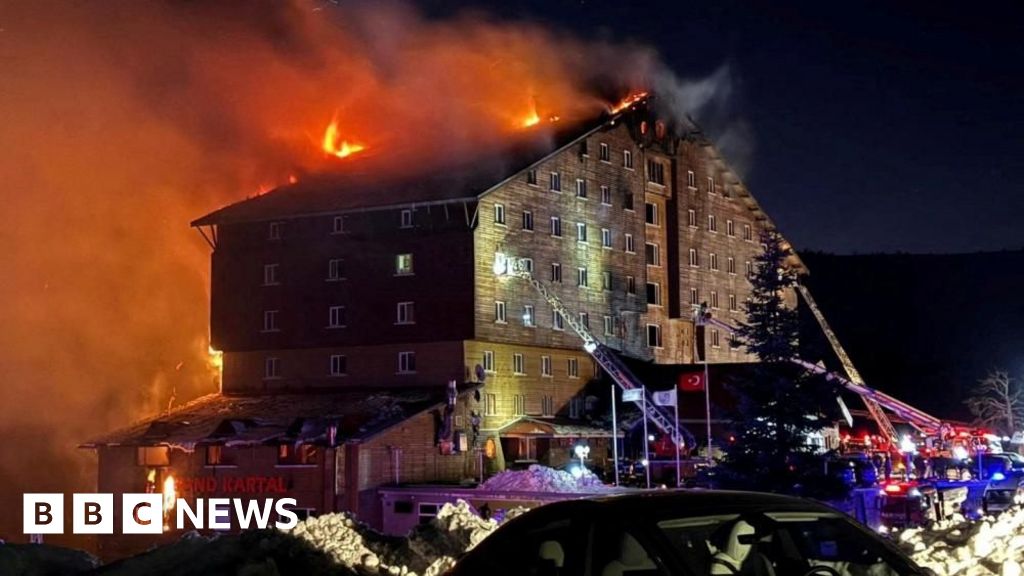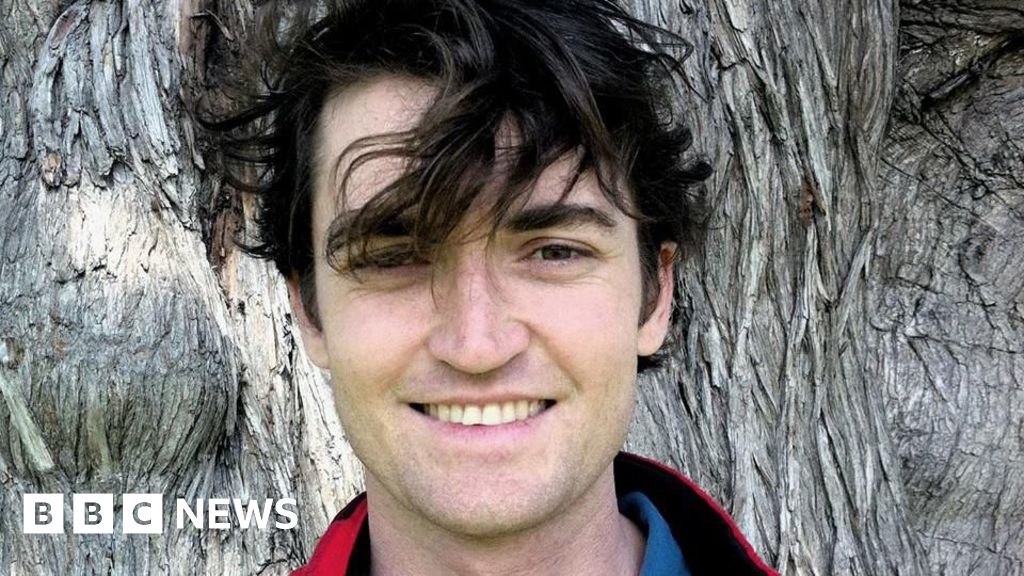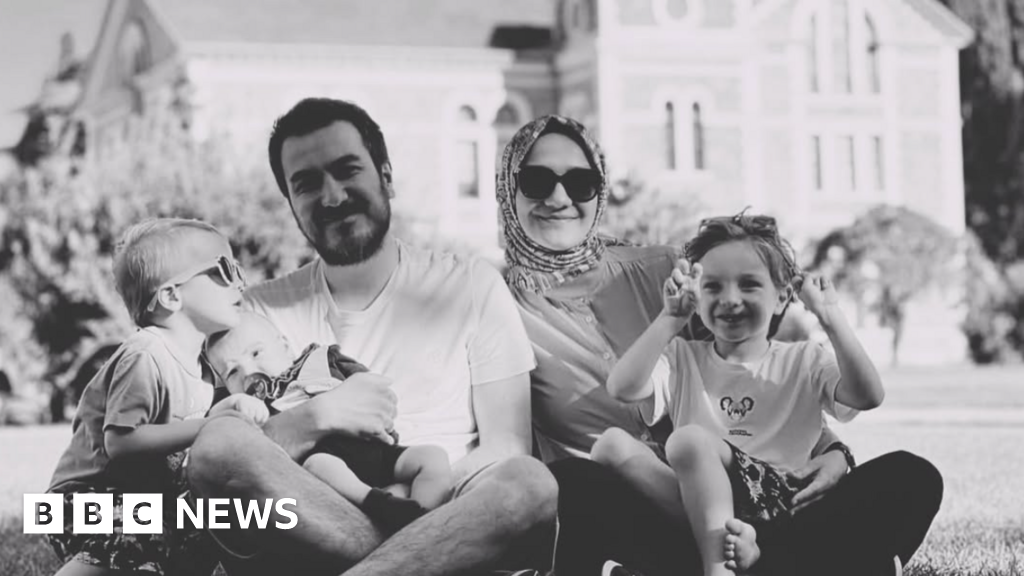ARTICLE AD BOX
By Sophie Long and Samantha Granville
Mississippi
 Image source, Getty Images
Image source, Getty Images
Volunteers escort patients into Jackson Women's Health Organization
At Mississippi's last abortion clinic, doctors arrive at work greeted by abuse and prayers for their souls.
The Pink House, as it's known, sits on the corner of one of Jackson's main roads. There are tall gates shielding the windows from the outside world, and music blares in an attempt to drown out the noise.
"Murderer!" shouts one protestor. "Turn to Christ!" shouts another.
Employees at Jackson Women's Health Organization are not the only targets.
As a young woman makes her way through the gates, she, too, is confronted.
"Don't do this!" a man shouts, "Don't kill your baby!".
Among the picketers outside the clinic are young children who hold up signs with images of what appear to be babies' limbs covered in blood.
Meanwhile their parents chant prayers as they follow patients along the fence that divides them.
Rainbow-clad volunteers escort the patients, in an effort to protect them from the harassment.
Amid the clamour, a man swerves a silver car, very slowly, along the street by the clinic entrance, with the passenger door open, up and down, slowly, again and again.
Kim Gibson, a seasoned volunteer escort, calls it "stochastic terrorism". The protestors create an atmosphere in which anything could happen, she said. All the doctors who travel from other states to work at the clinic know their colleagues have been the targets of deadly violence before.
Welcome to a normal Saturday outside Jackson Women's Health Organization, the abortion clinic at the heart of a high-profile US Supreme Court case on which a ruling is expected any day now.
The court is to decide whether Mississippi can ban abortions after 15 weeks of pregnancy - but its decision has much greater implications for millions beyond Mississippi.
The outcome is widely expected to result in the reversal of Roe v Wade, a landmark 1973 decision that guaranteed the right to abortion across the United States.
And here, in one of the poorest parts of the country, pro-choice campaigners say the consequences will be most acutely felt.
Mississippi from above
Amanda Furdge was a struggling single mum when she found out that she was pregnant a second time. She was still breastfeeding her first baby and living with her parents having just escaped an abusive relationship.
"I knew immediately I didn't want to or intend to be pregnant due to the struggles I've just gone through already," Ms Furdge said.
"I didn't have the mental emotional capacity or the economic support that I needed to be raising two kids at the time".
On a drive through the Mississippi Delta, the uniformed rows of crops and vast green fields are only interrupted by the occasional family of steel silos. Then suddenly there will be a mansion.
This is the land of the haves and have nots, with little but farmland in between.
The Delta is the poorest region of the poorest state, with the lowest number of doctors per capita across the US.
Wages are low here and health insurance is expensive. That combination has led to nearly 40% of the adult population becoming saddled with medical debt. When they can't pay, clinics and hospitals close, and access to healthcare gets worse.
Nina Ragunanthan is the only obstetrician at the Delta Health Centre in Mound Bayou
These factors have a major impact on pregnancy outcomes, campaigners and health experts say.
Mound Bayou is a small, now run down town in the Delta. The hospital here closed more than five years ago. There's one convenience store, a gas station, and half of the children here live below the poverty line.
At the Delta Health Centre, its only obstetrician, Dr Nina Ragunanthan, says banning abortion will lead to an increase in maternal deaths as it will force people with high-risk categories to carry pregnancies to term.
"I think what is sometimes missing in the general public discussion of abortion, is that abortion is a necessary part of reproductive care. Blindly banning abortion really puts women's lives at risk," she said.
Moreover, government-funded care, or Medicaid, ends eight weeks after birth, while the health issues new mothers experience do not. Mississippi voted not to extend Medicaid beyond the eight weeks earlier this year.
"I think that it is truly a no brainer for our state, to care for the women and children of our state. And it's a shame that our state wasn't willing to make that investment," Dr Ragunanthan said.
Yet views on abortion from Mississippians themselves are sharply divided.
Just an hour away from Mound Bayou, the town of Greenwood feels like another world. The houses are impressive with immaculately manicured lawns and the church equally so, with modern stained glass windows, a sound system outside, and air conditioning providing respite from the midday sun inside.
Dr Terry McMillin, an obstetrician who sings in the choir, sees a ban on abortion very differently to Dr Ragunanthan.
"I think there will be more children being given a chance at life. I don't think women's health care will be impacted" he said. "If we're telling people about Jesus and the laws of God, you know, maybe we shouldn't have sex outside of marriage, and we wouldn't have to make those difficult decisions."
He seemed unconcerned that Mississippi is one of the states that decided not to extend Medicaid for new mothers.
"That's certainly something that we may have to continue to look at, but I just don't see that as being a problem," he said.
When asked if he was worried that if abortion is illegal, desperate young women would take matters into their own hands as they did before, he paused for a long time before saying: "Again, I just don't see that happening".
Dr Terry McMillin (centre) is an obstetrician who sings in his church's choir
Increasingly, women with unwanted pregnancies are turning to faith-led crisis pregnancy centres (CPC) for help - there are 30 of them in the state and only one abortion clinic.
But often the goal of a CPC is to encourage women to stay pregnant and become a mother, rather than to help them end a pregnancy - something that critics say is not always disclosed.
Ms Furdge turned to a CPC when she was pregnant with her second child, before she went to the Pink House to seek an abortion.
According to Ms Furdge, the CPC she had gone to tricked her into thinking they would help her end her pregnancy.
Instead, she said they kept her waiting for hours after she did a pregnancy test. Then the counsellor asked her to show them a picture of her one-year-old son.
When she did, she said they held it up, asked her to look at it and then asked how she would feel if they killed him. She left upset and furious.
Still determined to end her pregnancy, she eventually found her way to Jackson Women's Health Organisation, but was too far along to get an abortion.
The clinic doesn't perform the procedure after 16 weeks, despite Roe v Wade establishing a right to abortion up to viability, which is around 24 weeks.
"I knew then my only other option [was] to go somewhere else in another state. But I didn't have any transportation and didn't have any funds," she said.
Amanda Furdge says she was tricked by a crisis pregnancy centre
At Birthright CPC, about a 15-minute drive from the Pink House in Jackson, the walls of the counselling room were plastered with pictures of smiling babies, and a row of life-sized plastic foetuses at various stages of gestation are displayed prominently in the counselling room.
In her nearly 30 years of volunteering, soon-to-be regional director Monica Walton has never thought someone should end a pregnancy, even deeply distressed girls who ended up here as a result of a rape.
"I don't think there's such a thing as a child that shouldn't be born. I just think the world's a better place with more children and I understand that there are higher risks," she said. "But I also know that women who are in poverty do have healthy babies."
Ms Walton said Birthright CPC would never trick or actively work to prevent anyone from getting an abortion. They just want women to be aware of all the options available.
But when asked, she did not know how much an abortion would cost.
There was no problem or hardship an unwanted pregnancy could bring that couldn't be solved through counselling and prayer, she said, though she disputed the suggestion that the centre forces religion upon anyone.
Their motto, she said, was that "we don't talk to the girls about God, we talk to God about the girls".
Amanda Furdge's children play with each other
Outside Ms Furdge's small apartment, Titan and Mega, who are now eight and seven, play football on a disused tennis court, while Seven, her three-year-old, propels himself around on a tricycle with his feet, having not yet mastered the pedals.
They seem to be happy, healthy little boys and Ms Furdge appears to be a devoted mother with an easy loving relationship with her young sons.
When asked what she would say to someone like Ms Walton, who feels she has helped many women like her to have a child they thought they didn't want, she does not mince words:
"No thanks to you!" she said, her voice getting louder. "No. Thanks. To. You!"
She said she had been lucky, but others like her were less so. "What about the young woman who's dead? What about the kids who don't have a mom? What about the child who's being abused? What about the kids in the foster care system who are suffering? So yes, we have these children but we can't support them".

 2 years ago
19
2 years ago
19








 English (US) ·
English (US) ·